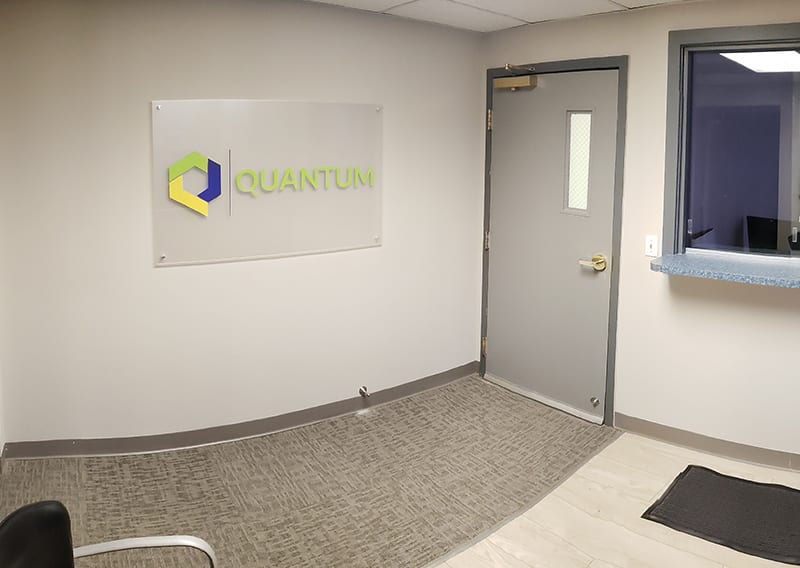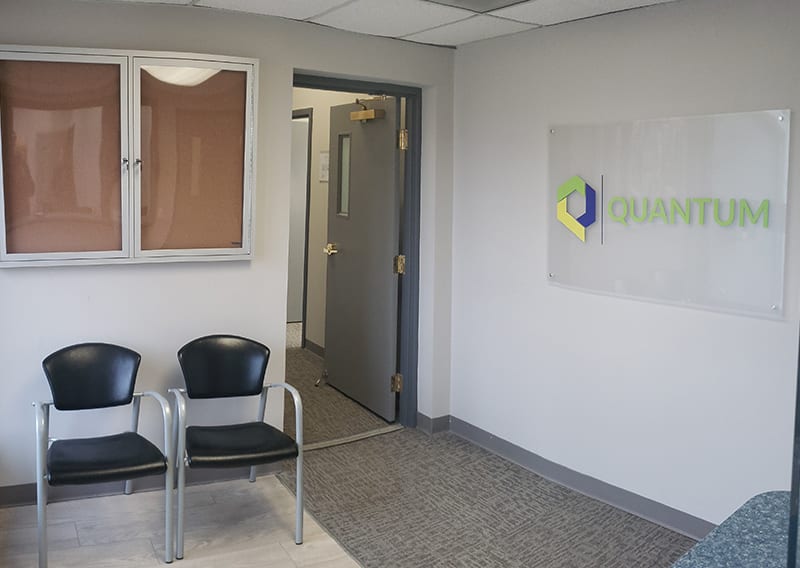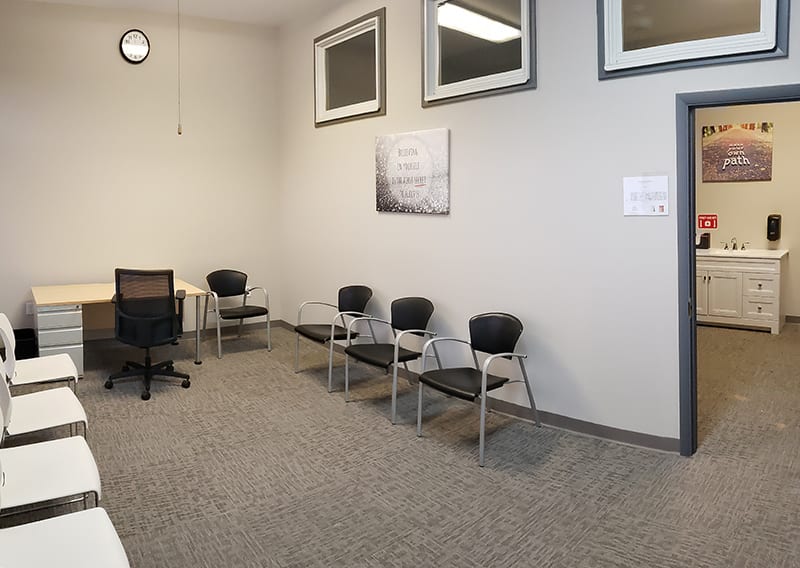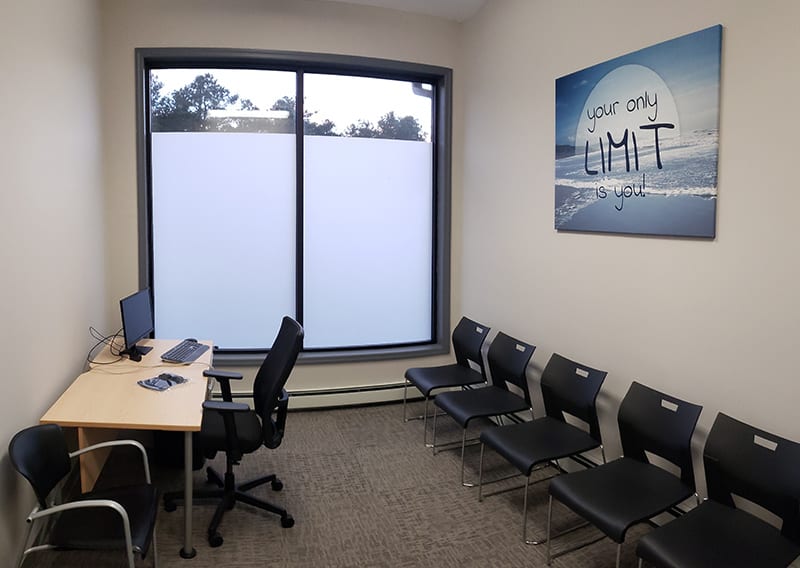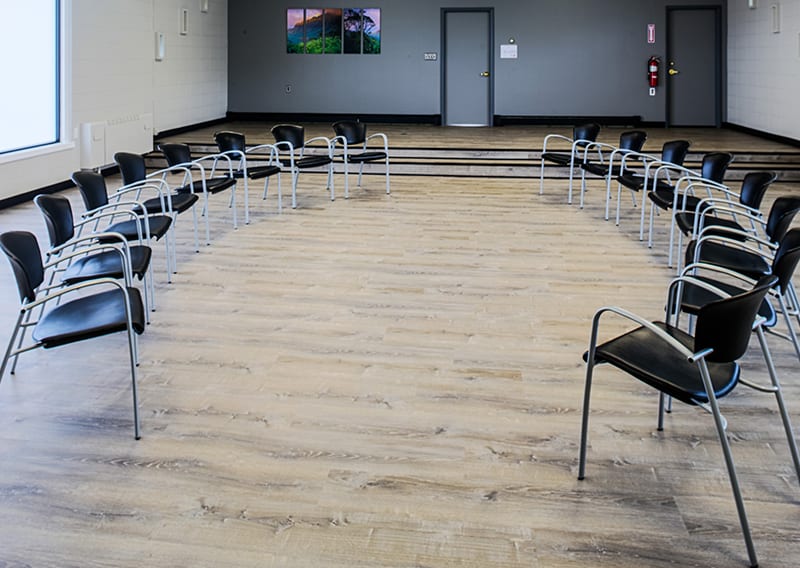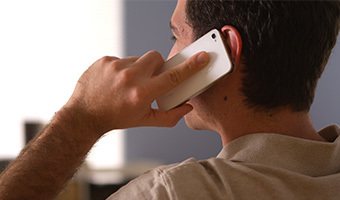Our facility is a warm, inviting, cozy, and secure environment that provides the perfect level of safety, comfort, and privacy as you receive treatment and get on your path to wellness. We’ve designed our space to allow for a low-stress environment where you can focus on your well-being.
Given the concerns of the COVID pandemic, we’re ensuring procedures are followed to create a clean environment for our patients, staff, and visitors. We’ve gone above and beyond CDC and New Jersey State guidance to design our cleaning and disinfecting protocol so that there is no question of the cleanliness and safety of our facility.
You’re here to get well and our priority is maintaining a safe, clean, peaceful, and welcoming environment for you to do just that.
To see our response to Covid-19, click here.
Photo Gallery
Click photos to enlarge
Are You Ready to Begin Your Journey to Recovery?
You could be completely covered. Verify Your Insurance Today.
The Quantum
Process Outpatient Rehab NJ
1. Make the Call
Contact our Quantum Team at
(609) 993 – 0733 to get started.
2. Complete
Your Intake
This streamlined process includes a series of questions and discussion of your unique needs and goals.
3. Get the Best Care Team Possible
After your intake, you’ll meet your Care Team, a group of amazing professionals dedicated to helping you make recovery reality.
4. On-Going Support
After you meet your Care Team, you’ll start to receive treatment based on a Care Plan that’s designed to help you achieve and sustain your recovery.
What Is Zoloft?
Zoloft is the brand name of a prescription selective serotonin reuptake inhibitor (SSRI) medication called Sertraline. It is used to balance the levels of serotonin in the brain in people who are suffering from mental health issues like:
- Major depressive disorder
- Panic disorder
- Social anxiety disorder
- Suicidal thoughts
- Post-traumatic stress disorder
- Premenstrual dysphoric disorder
- Obsessive-compulsive disorder
While mainly used to treat depression, Zoloft is also used “off label” at times to treat generalized anxiety disorder and an eating disorder. This medication can improve patients’ energy level and mood, restore their appetite, reduce the urge to perform repeated tasks, and decrease fear and panic. This medication comes in tablet form and liquid form. As this is not a medication that produces euphoria or a high of any kind, not many people abuse Zoloft, and it does not have many street names, although it may be referred to as “bottled smiles.”
Zoloft Effects
When taken as prescribed, taking Zoloft and other selective serotonin reuptake inhibitors (SSRI) will reduce anxiety and fear, improve sleep quality, improve energy levels, and restore interest in daily life, reducing unwanted or intrusive thoughts and panic attacks. Common side effects of taking this drug may include dry mouth, constipation, headache, nausea, insomnia, restlessness, weight gain, and increased sweating. You may develop a physical dependence, even if taking this medication as prescribed, so quitting cold turkey is never recommended.
Signs of Zoloft Abuse and Addiction
Is Zoloft addictive? Yes, it is psychologically addicting and causes a physical dependency over time. People may misuse Zoloft to try and deal with their daily problems and feel they cannot function normally without it. A person who may need addiction treatment and rehab for Zoloft dependency may:
- Take somebody else’s Zoloft prescription
- See more than one doctor to get several prescriptions
- Fake symptoms to get another prescription
- Feel physical and psychological withdrawal symptoms when they stop taking Zoloft
- Take larger or more frequent doses than prescribed
- Being unable to get through the day without Zoloft, feeling distressed and paranoia when they run out
Zoloft Withdrawal Symptoms
When a person stops taking this medication, they may experience withdrawal symptoms, especially if they have been using it for an extended period. Common Zoloft withdrawal symptoms are:
- Anxiety
- Paranoia
- Nightmares
- Stomach issues
- Headaches
- Mood changes
- Memory problems
- Flu-like symptoms
- Concentration problems
- Irritability
- Depression
- Fatigue
- Dizziness
Because Zoloft has a short half-life, its effects will quickly leave the system, causing serotonin levels in the brain to drop quickly. This causes the body to react adversely as it adjusts to the new serotonin levels in the SSRI discontinuation syndrome, lasting for one to three weeks on average.
Some people may experience this discontinuation syndrome for weeks or months after quitting, with symptoms returning without warning. These Zoloft withdrawal symptoms are more common in people who have been using the medication for a long time (years).
If you are trying to stop taking Zoloft and are experiencing these withdrawal symptoms, you may wish to consider entering a substance abuse treatment center. Through a medical detox plan in a rehab program that provides physical and psychological addiction treatments and mental health care, it is possible to taper off your addiction to Zoloft without suffering. You will also be provided with connections to therapists, doctors, and peers who can help you when things become difficult.
Long-Term Side Effects of Zoloft Abuse
Some of the risks of Zoloft abuse and the side effects of Zoloft include:
- Anxiety and nervousness
- Vomiting, diarrhea, and nausea
- Headaches
- Anorexia
- Abnormal bleeding
- Serotonin syndrome
- Neuroleptic malignant syndrome
- Suicidal thoughts
Zoloft Addiction Treatment
At Quantum, we have dual diagnosis programs for addiction with co-occurring disorders like anxiety, bipolar disorder, panic disorder, depression, mood disorders, obsessive-compulsive disorder, and others, a helpful program for those who were taking Zoloft for mental health issues.
We offer several levels of care in our Zoloft addiction treatment program, including individualized outpatient rehab, intensive outpatient programs, and partial care day programs, in which you can live at home or in a sober living home, receiving the treatment you need.
We also provide connections to inpatient rehab recovery center options if you would prefer to move into the center. In a medication-assisted treatment program, you may be able to avoid withdrawal symptoms completely by tapering off the medication in a safe and measured way.
If you want to find out whether your insurance covers rehab or if you have any questions about treatment for Zoloft addiction in the Quantum addiction center, call our team today.

